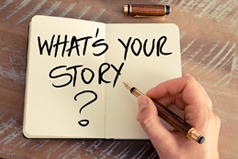Learning to Face Victimhood
I have spent a good deal of my life brooding about unfair treatment at the hands of others. I have spent countless hours in miserable resentment. I have shared my pain with others, too, eager to have them agree that I have been treated wrongly. I was driven to justify my bitterness. I have often wished I could stop my obsessive behavior, because it hurts so much. I could never understand why I found myself doing it anyway.
One day I learned to ask what this behavior was doing for me. What do I get out of it? I asked. Surely there must be some beneficial outcome, as all behaviors have a positive intention. Was this behavior something I chose? Did I actually have a choice? If I was choosing, then what were the alternatives I rejected when I decided to proceed with brooding and resentment?
I found some answers in John Bradshaws Healing the Shame that Binds You. I found even more by struggling to remember when I had first felt this way. I began to understand that I had first learned to obtain the love I wanted by pretending to be in desperate need. I learned to demand love and caring by generating an emergency of need. It was not enough to deserve love; I had to convince my caregivers to love me. Being pitiful and injured appeared to work, and it was the only survival technique available to me as a very young child. Because it sometimes worked, I began to believe I could control the feelings of others. I found survival and power in being a victim.
One fine day not so long ago, I dared to ask if my martyring and hostage-taking and low self-esteem could possibly be Victimhood, and the truth flooded in. In one sudden moment, I understood that my brooding and drive for commiserating was victim behavior, something I had not seen or searched for before. I understood suddenly that my victim behavior as an adult was a choice, and that I made this choice so rapidly and automatically that I failed to notice the moment of decision. I understood that I have many choices as an adult that were not available to me as a young child. Suddenly, because I realized that I have a choice, I understood that I was free.
Not so suddenly, I began to notice what I was feeling at the very moment I felt propelled into victim thinking and reacting. Often I find myself already embarked on a victim voyage before I realize what I am doing. It was a great help to understand that Victimhood is a gambit to obtain love and caring. I began to notice repeating patterns in my feelings and to notice similarities among situations in which I react with old behavior.
My key to escaping the prison of Victimhood has been to learn to recognize the feeling that always accompanies the choice. My signal is tightness in my chest and a certain flash of nausea. I even get this feeling when others do it. Sometimes my friends in recovery have to tell me. When I realize what I am doing, I simply stop. I screech to a halt, even in mid-sentence. My recovery comes first.
But recognizing my own victim behavior means much more to me today. After years of choosing Victimhood, I have a bad habit to break, and I must be patient and alert for subtle variations on the basic theme. As I escape each temptation, the wounded child in me is growing to adulthood and maturity. I learn from it about other choices I make without realizing they are choices. Victimhood, my old antagonist and cellmate, has become my teacher, and I am grateful.
Danny E.




Recent Comments